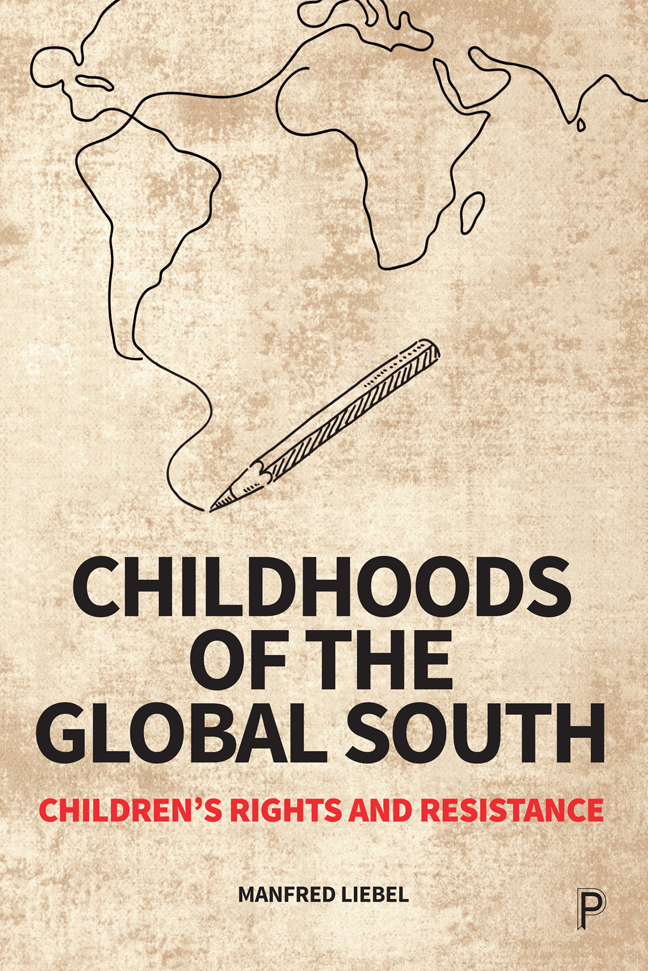Introduction: Colonization of childhoods and identities of resistance
Published online by Cambridge University Press: 23 January 2024
Summary
In the following sentences, I set out the basic line of argument of this book. First, I clarify why I think it is necessary to consider issues of children and children's rights in relation to colonization and coloniality. I then explain how I understand children's rights and why I consider them indispensable for the lives of children in particular at the grassroots. I also show what must happen and be considered for these rights to be experienced by children as meaningful and that they can be used by them in their own interest. In order to get a concrete idea of children's living conditions and collective interests, I explain my understanding of the concepts of ‘the popular’ and of ‘popular childhoods’ as well as ‘childhoods of the Global South’. Since I am primarily concerned with how identities of resistance emerge in these childhoods, I also consider it necessary to get an idea of colonization processes. In this book, due to my personal and professional biography, I focus on the subcontinent of Latin America and look for the traces colonization has left on social relations, on thoughts and feelings of young people, and how these can be counteracted. At the end of the Introduction, I give an overview of the individual chapters of the book.
Why and how do I speak of the colonization of childhoods?
Following the publication of the book Decolonizing Childhoods: From Exclusion to Dignity (Liebel, 2020), some people raised the question whether, analogous to the colonization of peoples and territories, it is possible to speak of a colonization of childhood(s). For this reason, I will explain how I understand colonization as a concept and why I find it meaningful to apply it to children and childhoods.
I understand colonization as a form of submission of people and living spaces against their will and to the detriment of the people in those living spaces. Certainly it must be borne in mind that the colonization is situated in a specific historical context, the era of European colonialism (and imperialism), and that it cannot be simply transposed to other historical or social contexts. It is equally important to bear in mind that the term has come to be understood in a broader sense as the ‘internal colonization’ of the lifeworld (Habermas, 1981). When I speak of the colonization of childhoods, I have in mind both meanings of colonization.
- Type
- Chapter
- Information
- Childhoods of the Global SouthChildren's Rights and Resistance, pp. 1 - 22Publisher: Bristol University PressPrint publication year: 2023

